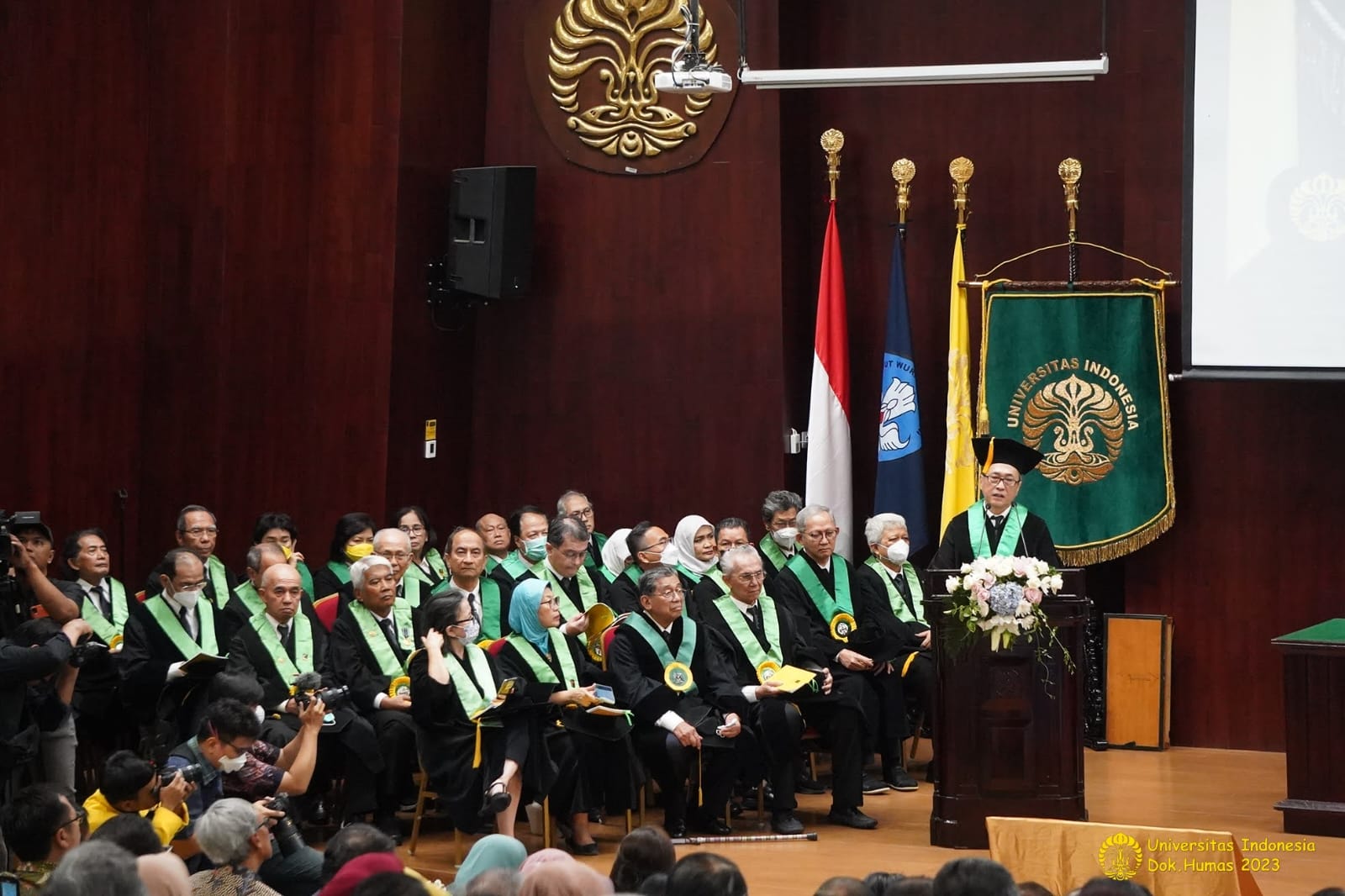Jakarta, June 10th 2023. Chairman of the Universitas Indonesia (UI) Board of Professors (DGB), Prof. Harkristuti Harkrisnowo, S.H., M.A., Ph.D., led the inauguration of professor for Prof. Dr. dr. Antonius Hocky Pudjiadi, Sp.A(K) in the Field of Pediatrics, Faculty of Medicine UI (FKUI), today (Saturday, 10/06/2023). During the inauguration held at the IMERI Hall, UI Salemba Campus, Jakarta, Prof. Antonius read a speech entitled “Pediatric Sepsis: Challenges and Optimism”.

Sepsis is a further clinical picture of infection accompanied by organ failure with a high risk of death. A global study in 2017 involving 195 countries and territories found 48.9 million cases of sepsis and 25.2 million of them were pediatric and neonatal sepsis.
The highest cases of sepsis occur in Sub-Saharan Africa, Oceania, South Asia, East Asia and Southeast Asia, which cause up to 11 million deaths or around 19.7% of global deaths. An estimated 2.9 million deaths occur in children under five with three main causes, namely neonatal sepsis, sepsis due to lower respiratory tract infections, and diarrhea.
Cases of pediatric sepsis occur because the child’s immune system has not yet developed like that of an adult. The child’s immune system will be like an adult’s immune system when the child is 2 years old, but it is only perfect when the child is a teenager. This immature immune response causes the baby to be susceptible to viral and bacterial infections. Moreover, newborns experience a transition from the sterile environment in the womb to the outside world that is full of microorganisms.
In 2002, several international associations, namely the European Society of Intensive Care Medicine (ESICM), the International Sepsis Forum (ISF), and the Society of Critical Care Medicine (SCCM) developed guidelines for the management of sepsis. This guideline, which was developed based on evidence-based medical methods, was first published in 2004. This campaign is known as the Surviving Sepsis Campaign (SSC) to reduce sepsis mortality by 25%. These guidelines were then updated at the 2020 SSC, especially regarding fluid resuscitation.
Prof. Antonius said that failure to handle pediatric sepsis cases not only hindered the reduction in mortality, but also increased the number of children with disabilities and developmental disorders. According to him, to deal with this problem, there are three programs that must be implemented, namely prevention of infection, prevention of disease progression, and prevention of disability or death.
Infection prevention includes education on sanitation, provision of clean water, immunization, improved nutrition, and identification and management of children with immune deficiencies. Prevention of disease progression is carried out through training of skilled workers and provision of equipment so that health workers are able to carry out procedures for early diagnosis of infection and emergency, resuscitation, and stabilization. The prevention of disability or death can be done through the development of a referral system and the development of the Pediatric Intensive Care Unit (PICU). This program must be carefully planned, including the financing system and health insurance. Long term planning is needed because building a health system takes a long time.
“The Covid-19 pandemic resulted in a fundamental shift in health strategy. This can be seen from the health promotion that has produced results that have never been achieved before. This positive development should be welcomed with a change in the attitude of health service providers and stakeholders, where they work hand in hand to reduce mortality and improve the quality of life for children as the next generation of the nation. If we agree to achieve it, it is no exaggeration to be optimistic about entering the golden age of Indonesia,” said Prof. Anthony.
Prof. Antonius completed his education at FKUI for the General Practitioner Program (S1) in 1979; Pediatrician Specialist Program (Sp1) in 1987; Pediatrician Program, ERIA Sub-Specialist (Sp2) in 1996; and Pediatrician Program (S3) in 2018. Some of his published research includes Serum NT-Pro-BNP versus Noninvasive Bedside Inotropic Index in Paediatric Shock: A Contest of Myocardial Performance in Response to Fluid Loading (2021), Pediatric Covid-19: Report from Indonesian Pediatric Society Data Registry (2021), Sepsis-Induced T-Cell Suppression in Pediatric Sepsis (2021), Resuscitation of Hemorrhagic Shock Using Normal Saline Does Not Damage the Glycocalyx in the Immediate Resuscitation Phase (2022), and Parents’ Perspectives Toward School Reopening During COVID-19 Pandemic in Indonesia—A National Survey (2022).
